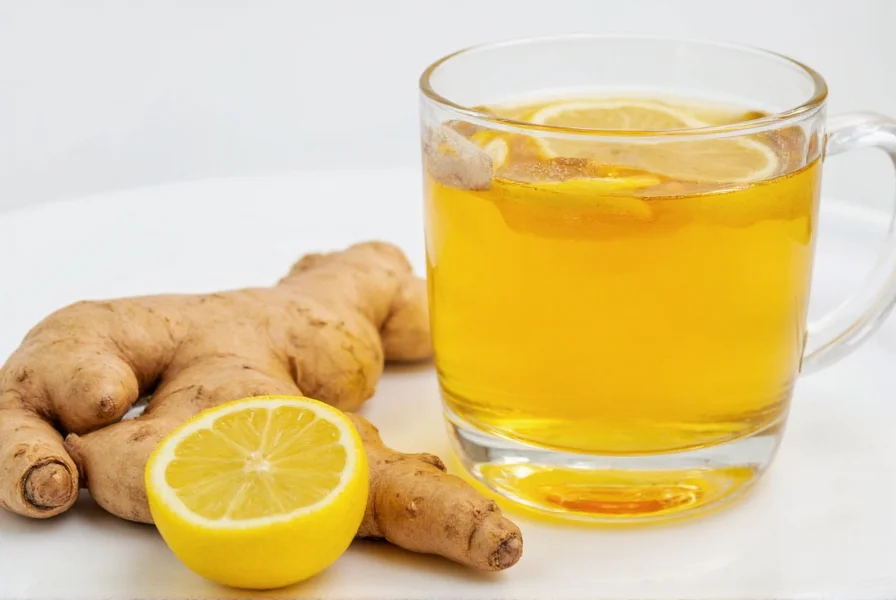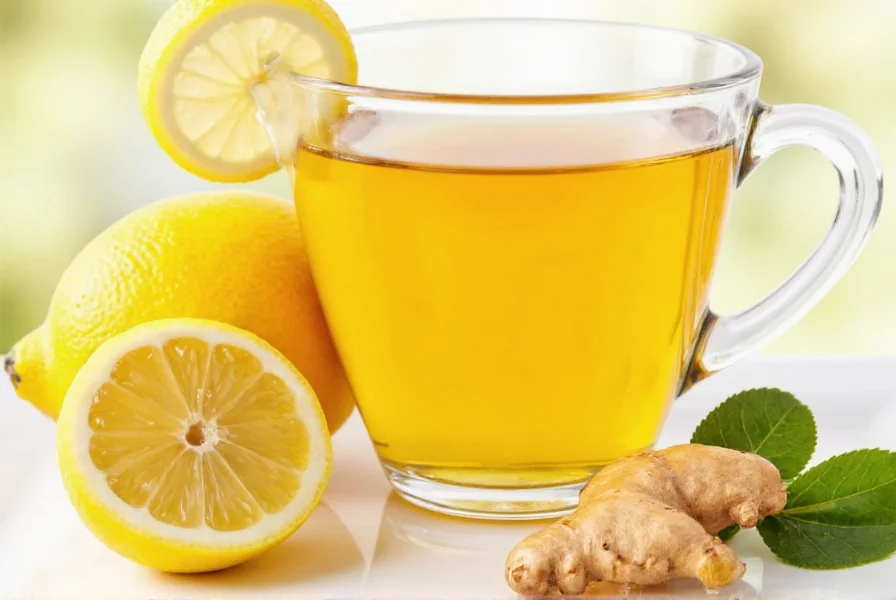Lemon and ginger root tea has been cherished across cultures for centuries, evolving from traditional Ayurvedic and Chinese medicine practices to become a staple in modern wellness routines. This simple yet powerful combination harnesses the natural properties of two potent ingredients that work synergistically to support overall wellbeing. Unlike many commercial herbal blends, authentic lemon ginger tea requires minimal processing, preserving the bioactive compounds that deliver its celebrated benefits.
Understanding Lemon and Ginger Root Tea Composition
True lemon and ginger root tea begins with Zingiber officinale, the botanical name for ginger root, which contains gingerols and shogaols—compounds responsible for its characteristic heat and therapeutic properties. When combined with Citrus limon, the scientific name for lemon, the resulting beverage delivers a complementary blend of vitamin C, flavonoids, and citric acid.
Unlike pre-packaged tea bags that may contain fillers or artificial flavors, homemade lemon ginger tea preserves the full spectrum of beneficial compounds. The preparation method significantly impacts potency—simmering fresh ginger root releases more gingerols than steeping dried powder, while adding lemon juice after cooling preserves more vitamin C.

Scientifically Supported Health Benefits
Research published in the Journal of Ethnopharmacology confirms ginger's effectiveness for digestive comfort, with multiple studies showing ginger root tea significantly reduces nausea and speeds gastric emptying. The National Center for Complementary and Integrative Health recognizes ginger as having "moderate evidence" for supporting digestion and reducing muscle pain.
Lemon contributes substantial vitamin C and flavonoids that work with ginger's compounds to create an antioxidant-rich beverage. A 2022 analysis in Nutrients found that the combination demonstrates greater anti-inflammatory effects than either ingredient alone, particularly for reducing markers like C-reactive protein.
| Benefit | Scientific Support Level | Key Research Findings |
|---|---|---|
| Digestive Support | Strong | Reduces nausea by 30-40% in clinical trials; accelerates stomach emptying |
| Immune Function | Moderate | Vitamin C supports immune cells; ginger compounds show antiviral properties |
| Inflammation Reduction | Emerging | Decreases inflammatory markers in multiple studies; effects increase with regular consumption |
Optimal Preparation Methods for Maximum Benefits
Creating effective lemon and ginger root tea requires attention to preparation details that maximize bioactive compound extraction while preserving nutritional value. The traditional method delivers superior results compared to quick microwave versions or using powdered substitutes.
- Select quality ingredients: Choose firm, smooth ginger root with tight skin and a fresh lemon with thin, brightly colored rind
- Proper preparation: Wash and thinly slice (not peel) 1-inch of fresh ginger to preserve beneficial compounds in the skin
- Simmering technique: Bring 2 cups filtered water to boil, add ginger, then reduce to simmer for 10-15 minutes (longer for stronger tea)
- Lemon addition: Remove from heat, add juice of half a lemon (about 2 tablespoons), and let steep 2-3 minutes
- Optional enhancements: Add 1 teaspoon raw honey after cooling to 140°F (60°C) to preserve enzymes
This preparation method for fresh ginger root tea with lemon extracts maximum gingerols while preserving lemon's vitamin C content. Avoid boiling the lemon juice, which degrades heat-sensitive nutrients. For those seeking how to make ginger lemon tea for immunity, this method delivers optimal bioactive compounds.
Safety Considerations and Potential Interactions
While generally safe for most adults, lemon and ginger root tea may cause issues for certain individuals. The American College of Gastroenterology notes that excessive ginger consumption (more than 4 grams daily) can trigger heartburn in sensitive individuals. Those with gallstones should consult a healthcare provider before regular consumption, as ginger may increase bile production.
Significant medication interactions exist with blood thinners like warfarin, as ginger contains compounds that may enhance anticoagulant effects. People with diabetes should monitor blood sugar carefully, as ginger may lower glucose levels. Pregnant women can safely consume moderate amounts (up to 1 gram of ginger daily) for nausea relief according to the American College of Obstetricians and Gynecologists, but should avoid excessive consumption.

Comparing Lemon Ginger Tea to Other Herbal Remedies
When evaluating natural remedies for digestive discomfort, lemon ginger tea offers distinct advantages over alternatives. Unlike peppermint tea, which may worsen heartburn for some individuals, ginger tea generally supports digestion without relaxing the lower esophageal sphincter.
Compared to commercial ginger ale products, authentic lemon ginger root tea contains significantly higher concentrations of active compounds without added sugars or artificial ingredients. A typical ginger ale contains less than 0.1% ginger extract, while properly prepared fresh ginger tea delivers substantially more therapeutic compounds.
For those exploring anti-inflammatory herbal tea options, lemon ginger tea provides a balanced profile compared to turmeric tea (which has poor absorption without fat) or chamomile tea (which lacks ginger's digestive benefits). The combination creates a synergistic effect that enhances the bioavailability of beneficial compounds from both ingredients.
Frequently Asked Questions
How often can I safely drink lemon ginger tea?
Most adults can safely enjoy 1-2 cups of lemon ginger tea daily. The European Medicines Agency considers up to 4 grams of ginger daily safe for adults. For regular consumption, limit to 1 cup morning and 1 cup evening. Those with sensitive stomachs may need to start with smaller amounts (1/2 cup) to assess tolerance.
Can lemon ginger tea help with weight loss?
While lemon ginger tea isn't a weight loss solution, it may support healthy metabolism. Research in the journal Metabolism shows ginger increases thermogenesis by approximately 10% in some individuals. The tea serves as a zero-calorie alternative to sugary beverages and may reduce appetite when consumed before meals. However, significant weight loss requires comprehensive dietary and lifestyle changes.
When is the best time to drink lemon ginger tea?
Morning consumption supports digestion throughout the day and provides natural energy. Drinking 20 minutes before meals enhances digestive enzyme production. Evening consumption (at least 2 hours before bed) may aid overnight digestion but avoid late consumption if sensitive to ginger's mild stimulating effects. For nausea relief, consume at first symptoms rather than on a schedule.
Does lemon ginger tea break a fast?
Plain lemon ginger tea without sweeteners contains negligible calories (less than 5 per cup) and generally doesn't break a fast for metabolic or autophagy purposes. The ginger compounds may actually enhance some fasting benefits by supporting digestion. However, adding honey or other sweeteners would break most fasting protocols. Those following strict religious fasts should consult their spiritual advisor.











 浙公网安备
33010002000092号
浙公网安备
33010002000092号 浙B2-20120091-4
浙B2-20120091-4